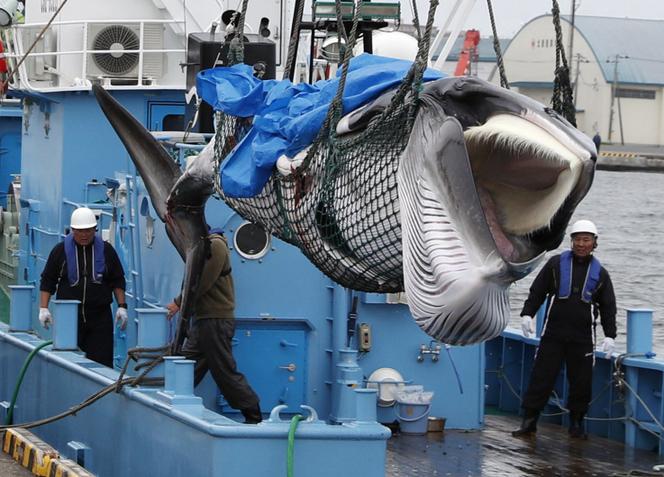


With ulterior political motives and despite criticism, Japan will add fin whales to the list of whales that can be hunted commercially. The announcement was made on Thursday, May 9, by government spokesman Yoshimasa Hayashi, who spoke of "an important food resource. We believe it should be exploited sustainably, like all other marine resources, on a scientific basis. It is also important to perpetuate Japan's traditional food culture."
The government has adopted a proposal from the Fisheries Agency and is expected to approve the new guidelines in mid-June. The agency has proposed adding fin whales to the list of cetaceans – Minke, Bryde's, and Sei whales – that can be hunted by Japanese whalers. It is based on studies confirming sufficient numbers of fin whales in the North Pacific.
The initiative prompted a reaction from director of International Relations at the NGO Ocean Care Nicolas Entrup who condemned "the aggressive development of a useless and cruel activity that meets no pressing human need." The fin whale is the second largest living mammal. It is classified as "vulnerable" by the International Union for Conservation of Nature (IUCN).
Japan remains committed to whaling, even though the Japanese hardly consume whale meat anymore. In the years of malnutrition following the Second World War, it was an affordable source of protein, abundantly served in school restaurants. Peak consumption reached 233,000 metric tons in 1962.
The collapse of whale populations led the International Whaling Commission (IWC) to declare a moratorium on whaling in 1986. Japan complied with the moratorium, before obtaining derogations in 1988 which authorized it to engage in the practice on the pretext of scientific studies. The archipelago was nevertheless criticized because, since the resumption of whaling, its fishermen have taken several thousand whales, a level deemed disproportionate for simple research.
There have been violent clashes between whalers and cetacean protection organizations such as Sea Shepherd. In 2014, Australia secured the condemnation of Japan by the International Court of Justice (ICJ). Canberra was protesting the presence of Japanese whalers in the Antarctic Ocean; an area considered a sanctuary by several countries. The UN court criticized Tokyo for disguising a commercial activity as a research program and infringing on "the preservation of marine mammals and the marine environment."
But the subject is a matter of national pride in Japan. Supporters of whaling point out that cetaceans have been consumed in Japan for almost 5,000 years. At the time of the ICJ verdict, only 14% of Japanese admitted to eating whale meat, but 60% supported cetacean hunting, even though, in the absence of sustained consumption, several hundred tons have to be frozen and stored.
You have 33.18% of this article left to read. The rest is for subscribers only.
